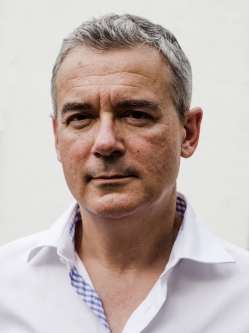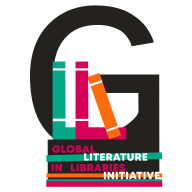Iliya Troyanov: The Collector of Worlds (UK: Faber & Faber; US: Ecco)
Winner of the 2006 Leipzig Book Prize for Literature
Shortlisted for the 2006 German Book Prize
Translated from German by William Hobson
I knew nothing of the British explorer Sir Richard Francis Burton, (1821-1890),
before reading Bulgarian-born Troyanov’s novel. And so my first sighting was of
Burton lying on his deathbed in Trieste. A Catholic priest has just administered
last rites, and following his death, Burton’s wife orders a leather-bound journal,
obviously containing her husband’s less than savoury memoirs, to be consigned to the
flames. As the pages burn, Troyanov brings the narrative within to life ….
… starting with Burton’s life as a young officer in the army of the East India
Company in India. It soon becomes obvious that he is destined to break the mould.
Not content to sup with his peers in the barracks, Burton immerses himself in the
local culture, learning and becoming proficient in multiple languages – during the
course of his life he mastered some 29 – and studying both Hinduism in such depth
that he was able to adopt a Persian alter-ego Mizra Abdullah and pass as a native. A
most useful talent for keeping his eye on the local population and reporting
whatever needed to be reported to his superiors.
Two further sections deal with other key phases of Burton’s life. His chameleon-like
ability to adopt new identities, not just an eccentricity, but a matter of life and
death as he makes the pilgrimage to Mecca disguised as the Persian Muslim Adbullah
el-Yezdi. (Had he been discovered in this pursuit, he would have be executed as a
Westerner.) During this time he is in the employ of the British Geographical
Society, so it is questionable as to whether he is motivated by faith, although
there is never a hint of disrepect in his approach to Islam. He does everything he
can – including undergoing circumcision – to ensure that his disguise is
impenetrable. In the third section, he appears as himself on an expedition to the
African Great Lakes with fellow British explorer, John Henning Speke.
The third person omniscience of each section is counterpointed by parallel
narratives from representatives of those very cultures Burton is
exploring/assimilating: Naukaram, his house servant in India, his fellow pilgrims on
the road to Mecca, and former slave, Sidi Mubarak Bombay,his guide through Africa.
These sections serve not only to confirm Burton’s reputation, but to emphasise the
strangeness – if I may use that word – of those cultures to this most European of
readers. No concession is made to the uninitiated – I was very grateful for
essential glossary which explained many of the specialist terms. That said, the
challenge in some of these pages was offset by their entertainment value. I
particularly enjoyed the conceit of Burton’s house servant dictating his CV to a
scribe, after an unceremonious (but deserved) dismissal from service. Let’s say he
is very indiscrete, spilling the beans on experiences that enabled Burton to
translate the complete Arabian Nights and the Kama Sutra from a position of
practical knowledge. (The lady’s name by the way was Kundalini.) Sidi Mubarak
Bombay’s narrative is garrulous, full of digressions and diversions, but also shows
how strange – yes, that word again – unfathomable even, the motivations of the
British explorers were to their African guides and porters. Why was finding the
source of the Nile so essential, and why rename geographical entities that already
had African names?
The expedition to Lakes Tanganyika and Victoria was no easy undertaking, and the
risks, dangers and battles against terrain and tropical diseases are graphically
depicted. Burton’s previous experiences served him well and enabled him to
communicate with the Africans in ways that Speke could not. Bombay doesn’t have many
– if any – positive things to say about Speke, characterised as a boorish Victorian
colonial, apparently only interested in game hunting. (And yet his was the correct
theory with regard to the source of the Nile.)
Even so, despite all the admiration of Burton in Bombay’s narrative, the fictional
listener of his tale, Baba Ishmael, states
“your journey is as familiar to me as my own travels. But this mzungu (white man) Bwana Burton, was a mystery to me from the start and he’s still a mystery to me now”. Bombay agrees saying “he never showed himself to me fully”.
This ambiguity was a characteristic Burton preserved to the end. Even the Catholic priest who administered the last rites was unsure as to whether Burton was a man of faith. Troyanov’s lengthy, erudite and challenging novel doesn’t really answer the question either. Burton remains an enigma, and there can be no more fitting tribute than that.
Lizzy Siddal

Ilija Trojanow (in English usually spelled Iliya Troyanov) is a German-language author, translator and publisher, born in Sofia, Bulgaria in 1965. In 1971, his family fled via Yugoslavia and Italy to West Germany. They then moved to Nairobi, Kenya, where Trojanow grew up, interrupted by a three-year stay in Germany. After studying in Munich, he founded two publishing houses which focused on African literature. His highly acclaimed début novel was »The world is big and salvation lurks everywhere« (1996). Trojanow repeatedly takes a critical approach to his home country and its current state of affairs. Years of research in Bulgaria led to his reportage »Dog years« (1999), published in a revised version as »The sham revolution« in 2006. This work was a provocative reckoning with the old nomenclature that has transformed into an oligarchy behind a smokescreen of democracy. In his novel »The Collector of Worlds« (2006), Trojanow examines the life of British colonial officer and ›Orientalist‹ Richard Francis Burton, an eccentric master of disguise who studied numerous cultures and languages, translated »Tales of 1001 Nights« and the »Kama Sutra«, travelled to Mecca without being recognized and searched for the source of the White Nile. Trojanow’s travel books “Mumbai to Mecca” and “Along the Ganges” describe his own visits to Muslim and Hindu holy sites. In 2009, together with Juli Zeh, Trojanow published »Attack on freedom«, a critique of state intrusion into the private sphere of its citizens. His novel, IceMelt (2011) is dedicated to the glaciologist, Zeno, and to the splendor of nature and the perils it faces. In »Power and resistance« (2015), Trojanow once again takes up the theme of tyranny in Bulgaria. In »My olympiad« (2016), he describes his training experiences in all eighty summer Olympic disciplines and balances these with texts on the cultural history and traditions of the various sports. Trojanow has received the Adelbert von Chamisso Prize, the Leipzig Book Fair Prize, the Berlin Prize for Literature, the Carl Amery Prize and the Heinrich Böll Prize 2017, among others. He was writer in residence in Mainz, Heiner Müller Guest Professor in Berlin and Brothers Grimm Professor at the University of Kassel. The author lives and works in Vienna.
William Hobson translates from French and German; among others he has translated several novels of Georges Simenon and Martin Pollak’s The man in the bunker.

Marcia Jarnell (more commonly known as Lizzy Siddal), is the brains behind Lizzy’s Literary Life, a hugely successful, award-winning book blog.
Photo Credit: Harald Krichel; Lizzy Siddal
This blog post is part of #BulgarianLiteratureMonth.


This sounds fascinating, as does its author. By coincidence I just bought a copy of Along the Ganges and I didn’t realize until it arrived today that Trojanow is Bulgarian. It was the translator, Ranjit Hoskote, that caught my attention. It is a small world after all, as they say!
LikeLiked by 2 people
By the way, Ranjit Hoskote wrote a book together with Trojanow: Confluences: Forgotten Histories from East and West (Yoda Press 2012; the German edition “Kampfabsage” was published in 2007)
LikeLiked by 1 person
An interesting review of a novel that seems to checkbox all of the main areas of Burton’s life, although there’s little in your review to suggest that the author paid any close attention to the key role that Isabel played in his life. They were inseparable, even when they were separated (which of course was often).
You mention Burton’s wife burning his journal, but that’s just the tip of the iceberg. She burnt pretty much all of his journals, papers and letters, and much was lost to the fire that day, partly on Burton’s wishes, and partly, as you mention, because she wanted certain things to be kept secret.
As to why finding the source of the Nile was important? Well, it was akin to landing on the moon in those days. It was one of the last great mysteries, and not just for curiosities’ sake, but also (and probably more so) because the British Empire (and other countries) desperately needed to map the African interior to open the trade routes (And yes, renaming rivers etc. as though it were a God-given right, which I suppose explorers thought it would have been during the time of the Empire 🙂 ).
As to faith, Burton never really had any. His wife Isabel was a devout Catholic and she tried to turn him, but he wouldn’t have any of it. His expedition to Mecca had absolutely nothing to do with faith, and everything to do with prestige and adventure (it’s what he lived for, and everywhere he went he couldn’t help but explore), and really, what an adventure (if you so wish, you can read Burton’s own exhaustive account in (‘Personal Narrative of a Pilgrimage to Al Madinah and Meccah’ in 3 volumes).
As satisfactory as you found this novel (and as I said it seems to cover the main points), it would be remiss of me not to recommend to you with every fibre of my soul, Mary Lovell’s biography ‘A Rage to Live.’ It maybe be as pro-Burton as one is likely to get (in her eyes he could do absolutely no wrong), but it’s the definitive word on Burton’s life, and even in your review of Trojanow’s novel I can see echoes of it. A close second would be Edward Rice’s biography on the man, and for interest’s sake Isabel Burton herself penned a biography on her husband a couple of years following his death. All worth checking out if your thirsty for more, if not then move on.
Glad you enjoyed learning something of one of my ultimate heroes, and that Trojanow’s novel facilitated that learning so well.
Rob
LikeLiked by 3 people
*whispers* I wish you had an ‘edit reply’ button on your website. So many typos ^^^ 😦
LikeLiked by 1 person
Trojanow has written a (partly autobiographical) second book about Burton “Nomade auf vier Kontinenten” (Nomad on four continents), which describes how Trojanow got interested in Burton while living in India and later following Burton’s life (including Trojanow’s hadj in the footsteps of Burton). As far as I know, this second book is not yet translated in English, but it makes for a very interesting read too. I believe it would be a complete misunderstanding of the novel however to think that it was the primary goal of its author to write a “Life of Richard Burton” in the form of a novel. It explores other topics, and Burton is in a way used to illustrate them, at least according to my understanding of the book.
LikeLike